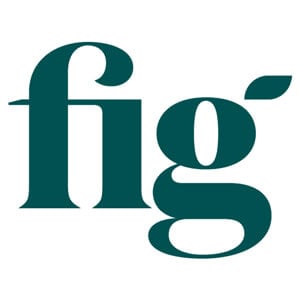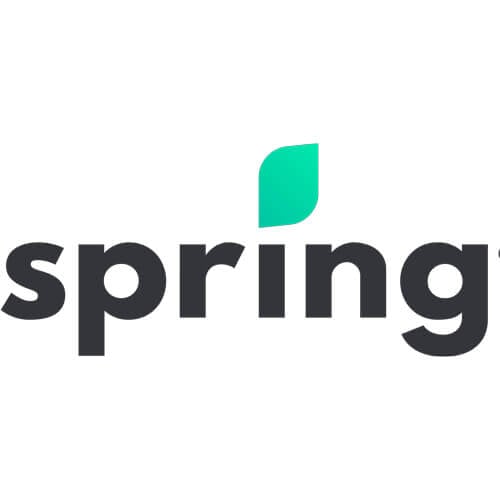How long do debt collectors try to collect in Canada?

Created By
Credit Canada
Wondering what you can do about endless calls from debt collectors? Learn about the limits to debt collection in Canada and your rights.
Advertisement

Created By
Credit Canada
Wondering what you can do about endless calls from debt collectors? Learn about the limits to debt collection in Canada and your rights.

Have you ever received a call from a collector? If you have some debt, you probably know that the collections process can be stressful—just hearing the phone ring can incite feelings of panic.
Considering that nearly one-third of Canadians agree that they carry “too much debt”, it’s safe to assume a large portion of Canadians have had to deal with debt collectors and collection agencies at some point.
If you’re on the receiving end of collection calls right now, you’re probably wondering how long debt collectors can try to collect, and if the calls will ever stop.
The truth is collectors can pursue consumers indefinitely, until the debt is settled. But, fortunately, there’s more to it than just that. The debt collection process does have limits and learning about them can help you manage your debt.

Apply for a personal loan with a 8.99% to 29.49% APR. Plus, 100% online application and no early repayment fees.

Apply for a personal loan with a 9.99% to 34.95% APR. Plus, fast e-transfers and no hit to your credit score when you apply.

Pre-qualify instantly to borrow up to $35,000, with rates from 8.99%
It’s hard to imagine limits to debt collection when you’re receiving calls almost every day. But thankfully, Canada has active legislation governing how collection agencies can communicate with debtors. And, the consequences of a collection agency or debt collector ignoring that legislation can be severe.
Here’s what debt collection agencies cannot do:
Keep in mind that some collection agencies might not follow all the rules. If that’s the case, you can report them to the Financial Consumer Agency of Canada or your provincial Consumer Affairs Office.
The answer is forever—and that is not an exaggeration. Debt collectors can pursue you indefinitely—as long as none of the aforementioned rules are broken. Even if you don’t hear from them for a while, you may not be out of the woods.
In under 60 seconds, get matched with a personalized list of loan providers based on your needs and approval likelihood. No SIN required.
When a debt goes unpaid, creditors (financial institutions, retailers, auto dealers or any person or company you may borrow money from) will sometimes transfer the debt to collections agencies, which will then attempt to recover the unpaid debt. During this time, the debtor can receive numerous collection calls.
But collection agencies can also pass off debts to other collection agencies. So, while the collection calls can stop for a period of time, once the debt has been transferred to another collection agency, the process to collect can start up again, promising an “indefinite pursuit.”
What does indefinite pursuit look like? It can mean regular letters and phone calls until the debt is settled—we’re talking years.
So, is there ever relief if you don’t pay the debt down? Collection agencies are bound by law-dictated time limits if they want to take you to court to collect an unpaid debt.
The statute of limitations for debts is a set of laws established by each province that stops collection agencies from successfully suing a consumer after a certain amount of time has lapsed since acknowledgement of the debt. This time varies from province to province, though most sit at two or six years.
For example, Ontario’s statute of limitations is two years from the last date of acknowledgement, while in Newfoundland it’s six years.
However, the “last date of acknowledgment” is open to interpretation, which can make it confusing for both consumers and some experts. For example, some might estimate the clock to start ticking within six months of a last payment. But this isn’t always the case.
Remember: While the statute of limitations on debt protects you from legal action after a certain period, it doesn’t protect you from debt collection calls. You’ll also risk lowering your credit score, making it slow and difficult to build your credit back up.
Additionally, the statute of limitations doesn’t prohibit legal action for all kinds of debt. So, the type of debt can make a difference in whether or not a debt collection agency can take legal action against you, too.
Do provincial statutes of limitations cover all forms of debt? No.
For example, the Government of Manitoba clearly outlines situations where the statute doesn’t apply, including for debts with collateral and owed taxes.
Here are a few situations where the statute of limitations on debt does not apply, and where debt collectors can pursue legal action even after the limitation period has passed.
Some collection agencies and debt collectors continue to threaten debtors with legal action long after the time to do so has passed.
If an agency attempts to take you to court after the limitation period ends for unsecured debt, here’s what you should do:
So, how do you deal with those pesky phone calls? If you know you owe money, you’ll eventually need to respond and figure out a payment plan. But you don’t have to do it alone (more on that later).
Here’s what to do the next time a debt collector calls you:
Next steps? Take the time to review your information and decide your course of action. Did the debt collector threaten you or call during a legally prohibited time? If so, consider filing a complaint.
If you’re dealing with collection calls, seek help from certified credit counsellors. Not-for-profit credit counselling agencies offer free credit counselling services across the country. They can provide various debt-relief options and guidance on next steps.
So, can debt collection agencies chase you with legal action indefinitely? Not for unsecured debts, but some forms of debt are fair game. As for collection calls? They’ll likely continue until the debt is paid.
This was written by Josie D’Addario, a certified credit counsellor and financial coach with Credit Canada. She is certified under Accredited Financial Counsellor Canada (AFCC) and the Bankruptcy and Insolvency Act (BIA). Credit Canada is Canada’s first and longest-standing credit counselling agency. For more than 50 years, Credit Canada has been helping Canadians lead healthy financial lives, achieve their goals and improve their quality of life through financial education and debt resolution. As a national, non-profit organization Credit Canada has helped thousands become debt-free and achieve financial wellness. If you are struggling with debt, you can contact Credit Canada for free credit counselling services.
Share this article Share on Facebook Share on Twitter Share on Linkedin Share on Reddit Share on Email
I bought a dress from the TSC and returned it with the label that they provided. I had a tracking number with Canada post and it reached the destination. They told me that it was send to one of their old warehouses that they don’t use anymore however they send me a shipping label with the old warehouse address (their shipping label. I have tried number out times to contact a resolution manager with no success because the only phone number that is available is going through customer service and they pass information off to resolution manger which I never hear from. I can’t get a resolution manager’s contact name, phone number or email from the company who says I owe them money. They have their customer service reps repeatedly contact me that I owe them money. It’s a hamster wheel that they say to call back the customer service number without being able to speak to a resolution manager. and I say I want to talk to a resolution manager. Customer rep says they will pass on the information and a manger will contact me and never do call me. Then I receive letters from the company stating that I owe them money (which I don’t…it’s been confirmed from by my credit card company) and now a collections agency. How do I resolve this when everything I did was correct and still being harassed?
Thank you for your question. Due to the large volume of comments we receive, we regret that we are unable to respond directly to each one. We invite you to email your question to [email protected], where it will be considered for a future response by one of our expert columnists.
I recently discovered a collection on my record when I pulled a credit report. It’s been almost on there for 5 years and didn’t know until now. I don’t know what to do at this point. I’ve been told after 6 years of being on your record in Ontario it will disappear off future credit reports if I just leave it be, is this true? I’ve been told if I pay it off, it’ll stay on my record for another 6 years (restarts).
Thank you for the question. We invite you to email it to [email protected], where it will be considered for future articles.
Will a creditor initiate a law suit for a judgement to get a lien against house assets against a senior 70 plus on unsecured credit card debt in Ontario, if house is under joint tenancy with spouse who has no debt?
Due to the large volume of comments we receive, we regret that we are unable to respond directly to each one. We invite you to email your question to [email protected], where it will be considered for a future response by one of our expert columnists. For personal advice, we suggest consulting with your financial institution or a qualified advisor.